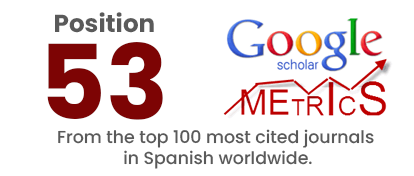The evolution of the Rapidrive Driving School Instagram metric
DOI:
https://doi.org/10.36097/rsan.v1iEspecial_2.3196Keywords:
Instagram, Metrics, Digital Marketing, Engagement, AudienceAbstract
Social media have become fundamental in communication and marketing. Instagram, one of the leading platforms, offers opportunities for audience interaction and engagement. This study analyzes the evolution of the Instagram metrics of the Rapiddrive Driving School in the period from October 2022 to May 2023. Variables such as reach, interactions, and follower growth were evaluated through quantitative analysis. The results highlight the importance of quality, authentic content in attracting followers and maintaining engagement. The variability in the metrics was analyzed using measures of central tendency and dispersion, revealing significant patterns. Follower growth and engagement rates have fluctuated, influenced by temporary events and specific content. Content strategy on Instagram, including posts, reels, stories, and videos, plays an essential role in reaching and engaging. Continuous adaptation and active community management are crucial for sustainable growth. The results offer a foundation for future digital marketing decisions, taking advantage of changing audience preferences and opportunities in the digital environment.
Downloads
References
Aloraini, N. (2018). Investigating Instagram as an EFL Learning Tool. Arab world English Journal, 4(4), 174-184. https://dx.doi.org/10.24093/awej/call4.13
Andraus, C., & Ramírez, E. (2024). Análisis de la identidad visual corporativa de los medios periodísticos digitales de Manabí. Revista San Gregorio, 1(58), 63-69. https://doi.org/10.36097/rsan.v1i58.2539
Bricio, K., Calle, J., & Zambrano, M. (2018). El marketing digital como herramienta en el desempeño laboral en el entorno ecuatoriano: estudio de caso de los egresados de la Universidad de Guayaquil. Universidad y Sociedad, 10(4), 103-109. https://rus.ucf.edu.cu/index.php/rus/article/view/984
Cakmak, K., Cikrikcioglu, I., Demiralp, O., Ozturk, A. P., Yilancioglu, Y., & Yildirim, M. (2017). The Causal Determinants of Popularity in Instagram. Technical Report, 1-21. https://lc.cx/MyNMMI
Code, M. (2015). Instagram, social media, and the “like”: exploring virtual identity’s role in 21st century students’: new socialization experience. Brock University, St. Catharines press. https://lc.cx/wtZYdR
Encalada, G., Sandoya, L., Troya, K., & Camacho, J. (2019). El marketing digital en las empresas de Ecuador. Journal of Science and Research, 4(1), 1-10. https://doi.org/10.5281/zenodo.3597830
Feehan, B. (2019). 2019 Social Media Industry Benchmark Report. https://www.rivaliq.com/blog/2019-social-media-benchmark-report/
González Romo, Z. F., & Iriarte Aguirre, S. (2020). Análisis de la gestión de la comunicación de los influencers farmacéuticos españoles en Instagram durante la pandemia del COVID-19. Revista Española de Comunicación en Salud, 1, S9-S30. https://doi.org/10.20318/recs.2020.5402
Iqbal, M. (2023). Instagram Revenue and Usage Statistics. https://www.businessofapps.com/data/instagram-statistics/
Mackay, C., Escalante, T., Mackay, R., & Escalante, T. (2021). Importancia del marketing para el posicionamiento de los emprendimientos en Ecuador. Revista Publicando, 8(31), 142-152. https://doi.org/10.51528/rp.vol8.id2240
Machado, A. L. R., Jerez, M. E. L., & Chicaiza, R. P. M. (2018). Estrategia de marketing basada en el uso de Instagram para la publicidad de ropa interior en Tungurahua, Ecuador. Revista Iberoamericana de Contaduría, Economía y Administración: RICEA, 7(14), 1-28. https://doi.org/10.23913/ricea.v7i14.115
Martins, B. I., Albuquerque, L. C. E., & Neves, M. (2018). Instagram insights: ferramenta de análise de resultados como nova estratégia de marketing digital. Intercom, 1, 1-13. https://portalintercom.org.br/anais/nordeste2018/resumos/R62-1138-1.pdf
Nandagiri, V., & Philip, L. (2018). Impact of Influencers from Instagram and Youtube on Their Followers. International Journal of Multidisciplinary Research and Modern Education, 4(1), 61-65. https://lc.cx/PNQnfy
Pérez, C., & Luque, S. (2018). El marketing de influencia en moda. Estudio del nuevo modelo de consumo en Instagram de los millennials uni-versitarios. adComunica. Revista Científica de Estrategias, Tendencias e Innovación en Comunicación, 15, 255-281. http://dx.doi.org/10.6035/2174-0992.2018.15.13
Purba, K., Asirvatham, D., & Murugesan, R. (2021). Instagram Post Popularity Trend Analysis and Prediction using Hashtag, Image Assessment, and User History Features. The International Arab Journal of Information Technology, 18(1), 85-94. https://www.iajit.org/portal/PDF/Vol%2018,%20No.%201/19395.pdf
Qian, C., Tang, J., Penza, M., & Ferri, C. (2017). Instagram Popularity Prediction via Neural Networks and Regression Analysis. IEEE Transactions on Multimedia, 2561-2570. https://cjqian.github.io/docs/instagram_paper.pdf
Uribarren, D. (2018). Marketing digital como herramienta de posicionamiento para emprendedores. Revista Saber, Ciencia y Libertad, 11, 183-188. https://doi.org/10.18041/2382-3755/germinacion.2018V11.9042
Zambrano, K., Mendoza, K., Párraga, L., Delgado, A., & Moreira, F. (2023). Análisis del marketing digital como estrategia de comercialización en las PYMES. Revista Minerva: Multidisciplinaria de Investigación Científica, 3(1), 107-113. https://doi.org/10.47460/minerva.v1iSpecial.85
Zhang, Z., Chen, T., Zhou, Z., Li, J., & Luo, J. (2018). How to Become Instagram Famous: Post Popularity Prediction with Dual-Attention. In 2018 IEEE international conference on big data (big data) (págs. 2383-2392). IEEE. https://doi.org/10.48550/arXiv.1809.09314
Downloads
Published
How to Cite
Issue
Section
License
Copyright (c) 2025 Cesar Andraus Quintero, Nestor David Cedeño Alcívar

This work is licensed under a Creative Commons Attribution-NonCommercial-NoDerivatives 4.0 International License.


















